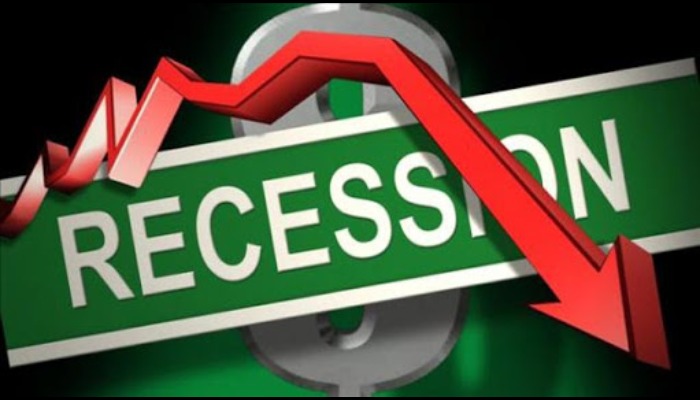Nigeria slips into recession as economy contracts again
Records show that this is the nation’s second recession since 2016

Nigeria’s economy has slumped into recession as the nation’s Gross Domestic Product (GDP) contracted by -3.63 per cent in the third quarter of 2020.
This is the second time the GDP would contract in 2020, indicating the economy is now formally in recession.
- How I was treated in the Villa – Zainab Buba Galadima
- Gunmen kill 1, abduct another along Kaduna train station
Records show that this is the nation’s second recession since 2016.
The GDP report released on Saturday by the National Bureau of Statistics (NBS) revealed that cumulatively, the economy has contracted by -2.48 percent and this represents an improvement of 2.48 percent points over the –6.10 percent growth rate recorded in the second quarter of 2020.
Furthermore, growth in the third quarter of 2020 was slower by 5.9 percent points when compared to the third quarter of 2019 which recorded a real growth rate of 2.28 percent year on year.
“The performance of the economy in Q3 2020 reflected residual effects of the restrictions to movement and economic activity implemented across the country in early Q2 in response to the COVID-19 pandemic. As these restrictions were lifted, businesses reopened and international travel and trading activities resumed,” NBS explained.
Analysis of the report showed that a total of 18 economic activities recorded positive growth in Q3 2020, compared to 13 activities in Q2 2020.
During The Quarter Under Review, aggregate GDP stood at N39.09 trillion in nominal terms.
This performance was 3.39 percent higher when compared to the third quarter of 2019 which recorded an aggregate of N37.81 trillion.
This rate was, however, lower relative to growth recorded in the third quarter of 2019 by –9.91 percent points but higher than the proceeding quarter by 6.19 percent points.
Oil Production
Meanwhile, the average daily oil production recorded in the third quarter of 2020 stood at 1.67 million barrels per day (mbpd), or 0.37mbpd lower than the average production recorded in the same quarter of 2019 and 0.14mbpd lower than production volume recorded in the second quarter of 2020.
Realgrowth For the oil sector was–13.89 percent (year-on-year) in Q3, 2020, indicating sharp contraction of –20.38 percent points relative to the rate recorded in the corresponding quarter of 2019.
Furthermore, real oil growth decreased by –7.26 percent points when compared with oil sector growth recorded in Q2 2020 (6.63 percent).
Quarter on quarter, however, the oil sector recorded a growth rate of 9.64 percent in Q3 2020.
The report showed that the sector contributed 8.73 percent to total real GDP in Q3 2020, down from 9.77 percent and 8.93 percent respectively recorded in the corresponding period of 2019 and the preceding quarter, Q2 2020.
Similarly, the non-oil sector grew by –2.51 percent in real terms during the reference quarter, which is –4.36 percent points lower than the rate recorded in Q3 2019 but 3.54 percent points higher than in the second quarter of 2020.
“The non-oil sector was driven mainly by Information and Communication (Telecommunications), with other drivers being Agriculture (Crop Production), Construction, Financial and Insurance (Financial Institutions), and Public Administration,” the report stated.
In real terms, the non-oil sector contributed 91.27 percent to the nation’s GDP in the third quarter of 2020, higher than its share in the third quarter of 2019 (90.23 percent) and the second quarter of 2020 (91.07 percent).
